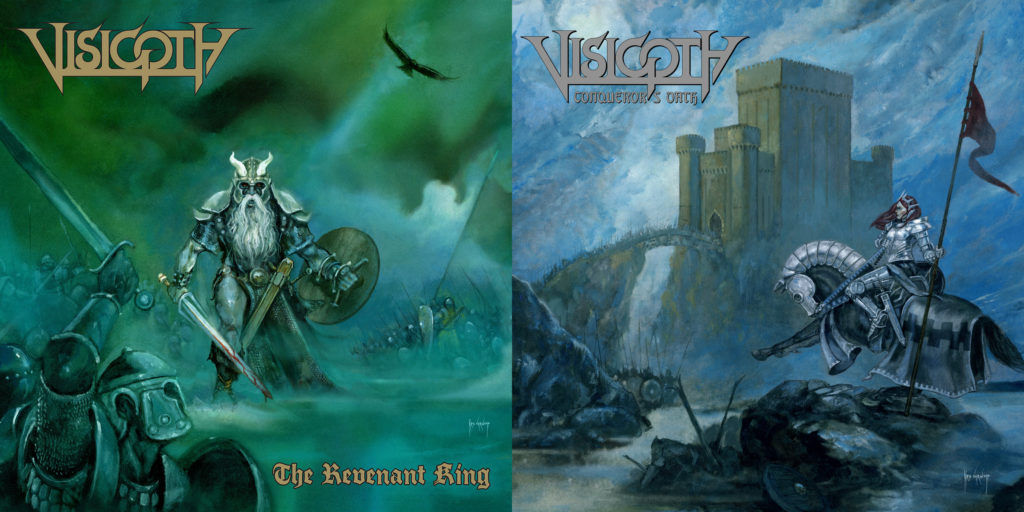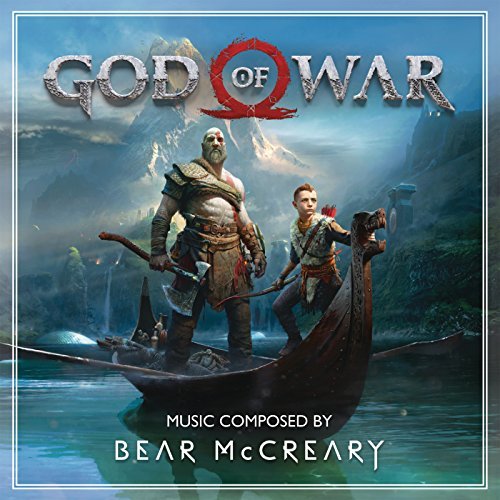The Year – 2018: Music
In a twist on The Week, to celebrate the end of the year I’m going to be making individual posts about the things that really stuck with me this year. These are the things that I kept coming back to and kept thinking about and, if possible, kept diving into the hole it created in my wallet.
Haim

I have no idea why I connected with this band’s music.
Their sound evokes a time period that actually makes me bristle––there’s something about New Wave bands that drives me up a wall. Overproduced, synth-driven, yawning vocals puts me right to sleep. Even though the three sisters of Haim evoke the musicality of New Wave, their musical proficiency, earnestness, and creativity really come through clearly on every song, even if the lyrics aren’t particularly challenging (though profundity creeps in with surprising clarity every now and then).
I found the band on a whim and a joke––but doing so took me to YouTube their live performances and, after watching a few, I was completely won over.
When it comes down to it, this music is just instrumentalized (is that a word?) delight. The sisters’ talent with musical variety and creativity––often incorporating disparate ideas within a single song––underneath their haunting harmonies hit a chord in me that genuinely lightens my mood and gets me to feel better.
As a barely competent musician myself, I often find myself listening to music and, after a bit of familiarity grows on me, I try to figure out how the music was done. While such an exercise is no doubt good for the brain, it often kills the music on the emotional level. It forces me to move from being the audience into the space of a performer and I don’t really have the ability to let the music affect me after such a transition.
Haim’s craftsman-like production, using tools and techniques from an era I don’t quite appreciate, maintains the distance between me and their music. Since I have no idea how they’re making some of these sounds––and they seem like tools or instruments that are not available to me––I can just sit and listen, which is nice to have every now and then
Visigoth

A lot of people are surprised by my adoration of heavy metal music. The truth is despite the aesthetics of the genre’s fans and musicians––black leather, spikes and studs, long hair, patches on vests of bands with violent or gory names or imagery––metal is actually populated by nerds.
Of course, with a majority of fans being suburban teens, the fans of metal are also likely playing Dungeons & Dragons on the weekends, and playing high fantasy video games like Destiny or The Witcher as it allows them to be warrior badasses single-handedly saving the world. They’re likely Game of Thrones fans who read the books first and read comic books on a weekly basis.
And this isn’t limited to the fans. It was Led Zeppelin that had lyrics about Gollum and Mordor from The Lord of the Rings in their song, “Ramble On.” Black Sabbath wrote music about giants and robots and wizards. Ronnie James Dio, of course, openly wrote about fairies and dragons and rainbows. Judas Priest wrote epics about fallen angels and post-apocalyptic wastelands (special aside: their new album––the 18th studio album––Firepower, released this year and is one of their strongest albums ever; it’s up in my top 5 Judas Priest albums, easily). Metallica wrote songs based on the work of H. P. Lovecraft.
But a lot of heavy metal’s forward-facing subjects––especially those exacerbated by press coverage during the ’80s and ’90s––focus on violence, death, occultism, and despair. While those are perfectly valid topics, it does bury the lede of heavy metal’s nerdy roots.
That’s why finding Visigoth this year felt like a huge intake of air after holding my breath for awhile. These guys are super nerdy and wear it on their collective sleeve (the bass player appears in all live performances and photoshoots wearing The Legend of Zelda shirts).
Though their first album, The Revenant King,was released in 2015, I discovered it this year and then, after about five or six months with it, I bough their 2018 follow-up, Conqueror’s Oath. They lean into the fantasy/nerdy roots of heavy metal with zeal and devotion and I just ate it up because it was all couched by really strong writing and performance.
Like Haim, in a way, they openly declare their inspirations but with an air of pride and earnestness that keeps it from becoming a joke. These musicians are very good at their job––the singer is especially powerful nigh operatic––and they are making music that means something to them, even if they’re singing a song called “Dungeon Master” which literally relates the imaginative and emotional experience of playing a good game of Dungeons & Dragons, or they’re playing the second album track “Outlive Them All”, which encapsulates the narrative thrust of the 1986 film, Highlander, verbatim.
However, they couch the inspirations in poetic interpretation, so if you have never seen Highlander you could perfectly enjoy “Outlive Them All” and not feel dumb for not knowing where it came from. It’s a lyrical styling pulled from the way Led Zeppelin or Judas Priest mined work for inspiration rather than as a wink-wink humorous approach to songwriting for laughs. Highlander is badass and their song inspired by it is badass. It doesn’t come across as a sort of, “Look at this ’80s reference, you guys! Isn’t that crazy?!”
What I love about this band’s music is that the songs are excellently structured, comprised of––for lack of a better word––movements that not only push the music forward but also the narrative of their songs (and a lot of their songs are narratives rather than more traditional songwriting about singular emotions or moments).
For example, my favorite song of theirs––”Mammoth Rider” off of The Revenant King––is about a Northman barbarian warrior riding down to combat an evil necromancer and his army because they wiped out the barbarian’s tribe, leaving him as the sole survivor. Midway through the song, a new riff is introduced that sounds like it comes from a different song entirely. It’s slow and trudging––evil-sounding, even. This makes sense because up until this point, the song was told from the point of view of the Rider himself. Suddenly, in this mid-song shift, the song is being told from the point of view of the evil necromancer before reverting back to the hero’s point of view.
It’s so much fun and so self-indulgent and, as mentioned before, earnest (something that seems to be behind all of the entertainment that resonates with me) that I can’t wait to see what other tales they will tell on their next release.
God of War Soundtrack
by Bear McCreary

I’m a big soundtrack fan and, even though the score of this year’s God of War game is impressive and good, its strong cinematic timbre didn’t do much to make it stick with me throughout the year.
However, as I wrote about before, because of my experience listening to the score a lot while grading––long before I ever played the game––I became extremely familiar with it in my own way, which may have hindered my playthrough of the game itself.
The experience of playing a new game while also having it all feel incredibly familiar because I recognized the music made for a very surreal experience. It didn’t break the game for me at all––nor did it dampen my appreciation of the score––it just had never happened in that order before and I had, on accident, created a host of personal associations and definitions of these tracks outside of the scenes and moments they were actually composed for.
It is kind of like listening to a radio program for years only to finally see the faces the voices belong to. That is often a jarring experience because when you don’t have that context going into it you create your own.
I should go back to the score now that I’ve been done with the game for awhile––alternatively, maybe I should also go back to the game after not listening to the score in quite awhile.

Discussion ¬